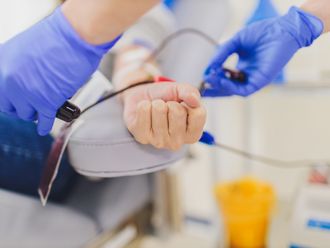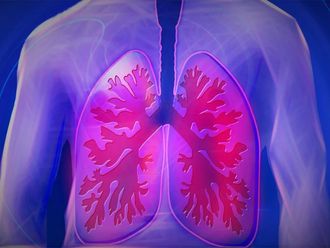Sharjah: University Hospital Sharjah (UHS) has opened a new dialysis unit to care for the growing number of kidney failure patients in the UAE.
Launched last month, initially with five dialysis machines, the unit will eventually house 12 stations that will be able to treat 24 patients daily in two shifts.
With almost one-fifth of UAE local population suffering from diabetes, a major cause of kidney failure, the centre hopes to play a key role in the treatment of a growing number of kidney patients.
Abdullah Ali Al Mahyan, Chairman of Board of Trustees, UHS, said: “Under the leadership and continuous support of His Highness Dr Shaikh Sultan Bin Mohammad Al Qasimi, the new dialysis center significantly expands UHS’s capacity to treat kidney diseases. Using the latest technology in water treatment, the addition of a dozen dialysis machines will be a major step forward in meeting the challenge posed by the growing incidence of renal failure in the UAE.”
Dr Adnane Guella, Senior Consultant Nephrologist at UHS, said the reason why an increasing number of people are suffering from kidney failure is largely due to the prevalence of diabetes. In the UAE, 19 per cent of the population suffer from the disease.
“One of the complications of diabetes is that the small blood vessels in the body are affected. When the blood vessels in the kidneys are damaged they cannot clean blood properly, which results in the build-up of waste materials and more protein in the urine. The body starts to retain more water and salt, which results in weight gain and swelling of the ankles. The end stage, or kidney failure, occurs when the kidneys are unable to keep the body in a healthy state and function. Dialysis is then required,” said Dr Guella, who said another risk factor for kidney failure was hypertension.
He also warned against smoking as it leads to cardiovascular diseases, lowers immunity, and also affects the kidneys.
Physicians have called for more awareness of kidney disease and regular screenings to detect it earlier, as dialysis is a time-consuming process. A patient has to undergo dialysis three times a week for about four to five hours.
To prevent kidney failure, it is important to lead an active life, eat a balanced diet with limited carbohydrates and fats, drink enough water daily, and avoid soft drinks and energy drinks.











